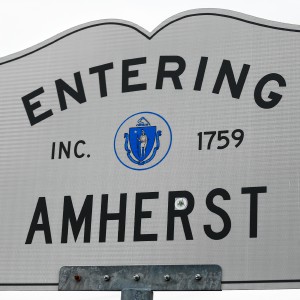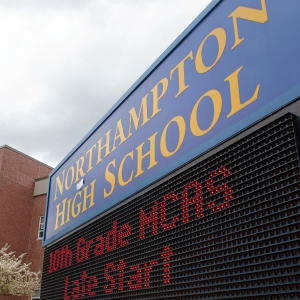Guest columnist Justin Silverman: Don’t think open government matters to you? This Sunshine Week, think again.

Justin Silverman CONTRIBUTED
| Published: 03-13-2024 4:41 PM |
Open government mattered to all of us during the height of the COVID pandemic.
Government played an outsize role in our day-to-day lives then. Schools closed, storefronts shuttered and the officials making decisions about quarantines, mask mandates and vaccines often met in secret or exclusively online.
We demanded access to their Zoom meetings and to information about how long our kids would remain home and when our businesses could reopen. We requested reports on public health data underlying the policies decided by our local and state representatives. We used public record and open meeting laws to get answers to our questions.
With the pandemic largely behind us, however, it can be easy to forget about government transparency. Outside of newsrooms, few of us regularly make public records requests or attend open meetings. The decisions of government don’t seem to weigh as heavily on us as they once did.
Sunshine Week is March 10 to 16 and is a reminder that the need for open government never abated. The sunshine reference is attributed to U.S. Supreme Court Justice Louis D. Brandeis, who famously wrote that “sunlight is said to be the best of disinfectants.” In other words, an informed public is the best way to rid government of corruption.
We don’t need a global pandemic to appreciate our personal stake in government accountability. Consider the following examples of how sunshine laws are playing out in the region:
■Regular FOIA scofflaws in Connecticut rarely pay fines despite the law allowing up to $5,000 in penalties. As of last month, the state’s Freedom of Information Commission imposed only six fines for FOIA violations since 2012. Changes in the law now require the fines to be paid by officials personally. This is a strong incentive to follow the law, but only if fines are imposed and the message is sent to agencies that they cannot disregard their FOIA obligations with impunity.
■Following the worst mass shooting in Maine’s history, newsrooms are making public record requests to better understand how the tragedy in Lewiston unfolded. Through records obtained using the Maine Freedom of Access Act, we know more about the shooter’s military history and what, if any, attempts were made to treat his mental disorders before last October. The information learned through public records will almost certainly fuel arguments for — and against — gun reform in the state.
Article continues after...
Yesterday's Most Read Articles
 Northampton bans auto dealerships near downtown; zone change won’t affect Volvo operation on King Street
Northampton bans auto dealerships near downtown; zone change won’t affect Volvo operation on King Street
 Proposed Hatfield pickleball/tennis building raising eyebrows
Proposed Hatfield pickleball/tennis building raising eyebrows
 South Hadley man killed in I-91 crash
South Hadley man killed in I-91 crash
 ‘Home away from home’: North Amherst Library officially dedicated, as anonymous donor of $1.7M revealed
‘Home away from home’: North Amherst Library officially dedicated, as anonymous donor of $1.7M revealed
 Police respond to alcohol-fueled incidents in Amherst
Police respond to alcohol-fueled incidents in Amherst
 Public gets a look at progress on Northampton Resilience Hub
Public gets a look at progress on Northampton Resilience Hub
■A proposal by Massachusetts Gov. Maura Healey would make the format of local open meetings completely discretionary instead of guaranteeing both in-person and remote access. Do you have a disability, parenting responsibilities, odd work hours or any other reason preventing you from traveling to a government meeting? Under this proposal, you’ll be shut out when city councils, select boards or school committees decide to hold their meetings exclusively in person.
■In a state where the right to know about government is enshrined in its constitution, New Hampshire lawmakers are considering a bill that would allow excessive fees to be charged for public records. The bill makes no exception for those who cannot afford the fees or for information of high public interest. Instead, the legislation incentivizes government officials to overestimate the time to comply with a records request, needlessly redact and review documents, and ultimately deter even modest requests from being made in the first place.
■Want to know how the Washington Bridge in Providence fell into disrepair and why it ultimately closed? You’ll need to pay. Rhode Island Gov. Daniel McKee is charging thousands of dollars for records that date back to July 2023 when the bridge last passed inspection.
The attorney general’s office said that while the charges are legal, they can also be waived by the governor. Legislation to change the state’s Access to Public Records Act would require those fees be waived and make it easier for us to understand what caused one of the biggest travel headaches in the state’s history.
■Vermont state agencies are turning the public records law on its head, requiring reporters to submit formal requests for basic information that should be readily accessible. As Diane Derby at the VTDigger recently explained, agencies are using the law “as a shield to deny reporters timely access.” Rather than just answer a straightforward question, she said, they force the reporter to file a formal request, slow the process and deprive readers like you of much-needed information.
Still not convinced you have a personal stake in government transparency? Consider sunshine an insurance policy. Even if none of the situations above resonate with you or relate to your daily life, know that transparency discourages government misconduct from occurring at all. Those in government are less likely to act in their self-interest when the public is looking over their shoulder. When malfeasance does occur, we can use our sunshine laws to learn what happened and hold those responsible accountable for their actions.
Let’s not wait for another pandemic or public health crisis to make transparency a priority. Sunshine is a cause we should always be rallying around.
Justin Silverman is executive director of the New England First Amendment Coalition and a Massachusetts-based attorney. He is an adjunct professor at the University of Maine School of Law, New England Law-Boston and the University of Connecticut.

 Guest column: Serving educational needs shouldn’t be ‘aspirational’
Guest column: Serving educational needs shouldn’t be ‘aspirational’ My Turn: Gaza and lies
My Turn: Gaza and lies Guest columnist Mariel E. Addis: Pride and prejudice
Guest columnist Mariel E. Addis: Pride and prejudice Guest columnist Gene Stamell: We know what we know
Guest columnist Gene Stamell: We know what we know
